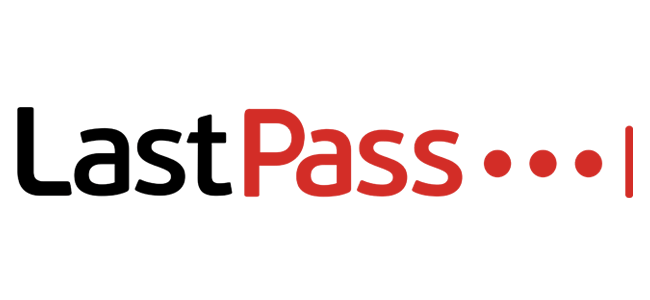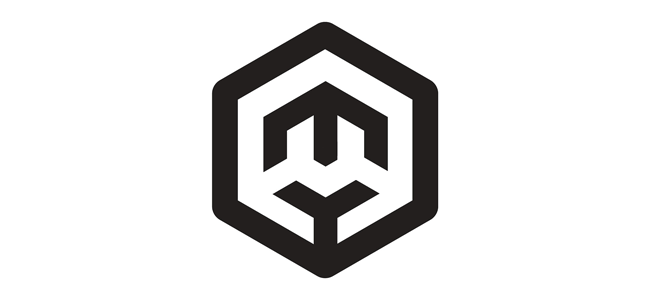
CYBER SECURITY | 9 MIN READ
Varying the passwords you use for everything from your email account to your company's HR database is a great first step at protecting your data, but what happens when you have so many passwords that you begin to lose track of them all? Thankfully, password management platforms like LastPass and MyGlue both offer comprehensive solutions that store all your passwords in one secure location. However, is LastPass or MyGlue a better fit for your business? Read our in-depth comparison to figure it out.
Not enough time? Jump to:
How Else Can I Protect My Network?
LastPass

Pros:
Inexpensive
User-Friendly
Comprehensive Array of Features
LastPass has an array of features that collectively set them apart from the rest. Their Chrome extension takes the effort of adding new accounts to your password vault easy. When you log onto a new website, a pop-up asks if you want to add this account to the passwords in your vault.
Cons:
Limited Support
Victim of Repeated Data Breaches
Lack of a Refund Policy
RELATED: LastPass Hack: How It Signals a Need for Greater Cyber Security Measures
MyGlue

Pros
Secure File Storage
MyGlue stores more than just passwords − it can secure certain files, including all of your Standard Operating Procedures, too! When running a business, organization is key.
Using a secure file storage option like MyGlue ensures not only that all employees are on the same page with work protocol, but that these protocols are safely stored in the same accessible location. Use this feature to streamline business operations, saving your employees time by letting everyone work more efficiently.
You can rest assured that files and SOP's will be stored securely, seeing as MyGlue uses the latest in cyber security protocol. According to MyGlue's website they use methods such as "role-based permissions, an audit trail, version history, two-factor authentication and the gold standard of cloud software, SOC 2 compliance".
Streamlines Collaboration
One of the most exciting and value-driven aspects of MyGlue is that it streamlines operations by allowing your IT staff to efficiently collaborate together.
MyGlue allows for its users to share key processes, for instance how to update a firewall or antivirus, with one another. If you have an internal IT team, this can increase their efficiency.
For instance, MyGlue's Contacts page lists all of your business' employees as well as each employee's security authorizations. Having a page like this that lists all security authorizations in one place can help a MSP or internal IT team solve security issues more quickly.
If your business works with a Managed Service Provider, then your MSP can use this software to share key data points with you, which allows you to more effectively communicate remotely.
No Data Breaches
As of the writing of this article, there are no major MyGlue data breaches that we could find. When searching for a password manager for your company, it is worth considering platforms with little to no data breaches because that is a sign of how strong the platform is.
Since MyGlue is hosted in AWS, it's tremendously resilient to geographic outages. This resiliency serves as a further testament to how secure their platform is.
Cons
More Expensive
MyGlue's pricing is on the more expensive side, which could be a drawback to businesses with smaller budgets.
While this pricing may dissuade some, keep in mind that part of the price difference could be due to the fact that it is a part of the Kaseya technology stack, which means that with this price point you're paying, at least in part, for the convenience of having all your data hosted in one area.
If you own or lease other Kaseya software such as IT Glue, then all this software will work in conjunction with one another.
Mobile App Less Advanced
MyGlue's mobile app seems less advanced than LastPass', according to customer reviews. While it has been known to be glitchy and slow, that doesn't mean that MyGlue's creators won't post updates addressing said glitches.
Which Is Better?

Sadly, the answer to the question "Which Is Better, LastPass or MyGlue?" isn't clear-cut. Depending on your business' budget and needs, you may prefer one over the other. Make sure to read each platform's features to decide which are necessary for your business and which features/level of service you are more flexible on.
For instance, if you don't see a huge need for a high-functioning mobile password management app within your organization, then you might gravitate to MyGlue.
Additionally, if you are already an ITGlue customer or you want a high-quality solution with no data breaches on record, you might lean towards choosing MyGlue. ITGlue customers that use MyGlue can streamline business operations by housing much of your cyber security processes and data in the same place.
If you have a lower budget and prefer a cheap or free option, then LastPass could be the solution for you. Keep in mind though, that if you are already a customer of ITGlue, a software affiliated with MyGlue, then you are likely eligible for a limited free upgrade to MyGlue.
How Else Can I Protect My Network?

Strengthen and Protect Your Passwords
While a password management platform is a great way to protect your passwords from being discovered by hackers, strengthening your passwords will add another layer of security between your private data and hackers.
Weak passwords are one of the easiest ways that a hacker can break into your network and steal sensitive data. Consider strengthening your passwords to better leverage your cyber security infrastructure.
A main focus of any password policy should be to limit how much you write down your passwords, whether they're on a sticky note, an Excel spreadsheet, or in the Notes app on your phone. Writing a password down anywhere leaves it susceptible to being found by hackers.
If you write account passwords down on your phone, all it takes is your phone being stolen or your iCloud account being hacked for somebody to have the logins to accounts that contain sensitive information such as your credit card number.
To maintain strong passwords, consider changing passwords every six months and creating passwords that don't use easy-to-find information such as birthdays or your children's names. When creating a password, make sure it's long and complex.
RELATED: Cyber Security Awareness Training for Employees [Tips]
Know How to Spot a Phishing Attack
While computers are designed to not make mistakes, hackers know that humans are prone to errors. That is why they exploit human error to gain access to a network and deploy ransomware. A popular way that hackers gain access to a network is through phishing attacks, which then let them steal your sensitive data.
Phishing attacks involve a hacker sending an email containing a malware-loaded link to a potential victim. The email can either contain an enticing offer, such as "Click this link for a free cruise!' or can be faked to resemble a legitimate company. For instance, a hacker posing as Google could email a victim telling them to click a link to update their email storage.
Always be wary of emails from people you don't know telling you to click a link. If you want to see if an email is a phishing email, you can look at the address that the email is from. For instance, a phishing email posing as Facebook that has the email address "security@fakebookalerts.live" is probably a fake address.
Make sure that the address is spelled correctly too with no character substitutions. While an address from "@facebook.com" might be legitimate, an email from "@facebo0k.com" is probably a phishing attempt.
Another way to test a phishing email is to try and find the page the email is referencing without clicking the link. For instance, if the email is from Microsoft and is telling you to update your storage, try doing that through the official Microsoft website instead of through the link. If you can't find such a page, then the email is most likely a phishing attempt.
In general, most legitimate emails don't ask you to click a link to validate or update information, so your internal warning signals should flash as soon as you see this. If you feel suspicious about an email, try calling the company who it's from to ask about the email, along with other verification methods.
RELATED: What is Phishing? [Types and Tips to Prevent]
Consider Managed IT Services

While password managers are a great first step to secure your sensitive data, managing your business' cyber security infrastructure is a whole other beast to tackle. You might not have the time to manage your cyber security infrastructure, especially if you only have an in-house IT manager or another employee managing it.
Managed IT services can help put the above suggestions and more into action. Managed IT services layers your cyber security infrastructure and then employs a team of IT experts to address any threats or issues that pop up.
Managed IT services can help you create a password policy and role-based security that works for your business too. In the event that a ransomware attack happens or your network goes down, they can reduce downtime by quickly recovering data due to their use of frequent and secure backups.
A managed services provider can use dark web scans and network scanning tools to address existing security gaps. Then, they can install layers of cyber security hardware and software, such as firewalls, anti-virus software, and anti-ransomware software.
To take the burden of updating software off of you, a managed services provider can update all cyber security software for you and install necessary security patches.
They can conduct phishing tests to find employees who fall for phishing traps, and then educate those employees on how to recognize and avoid phishing attacks. To take phishing prevention a step further, a managed services provider can enable email filtering services to stop phishing emails in their tracks.
Don't wait to improve your cyber security, because hackers won't wait to attack your network.
RELATED: Cyber Security Solutions: 12 Best Practices for Businesses
Posted by Erica Kastner

Erica Kastner is a lead Marketing Specialist at Standard Office Systems as well as a University of Georgia graduate. She aims to use her passion for problem-solving to help businesses understand how to better leverage their network infrastructure.

